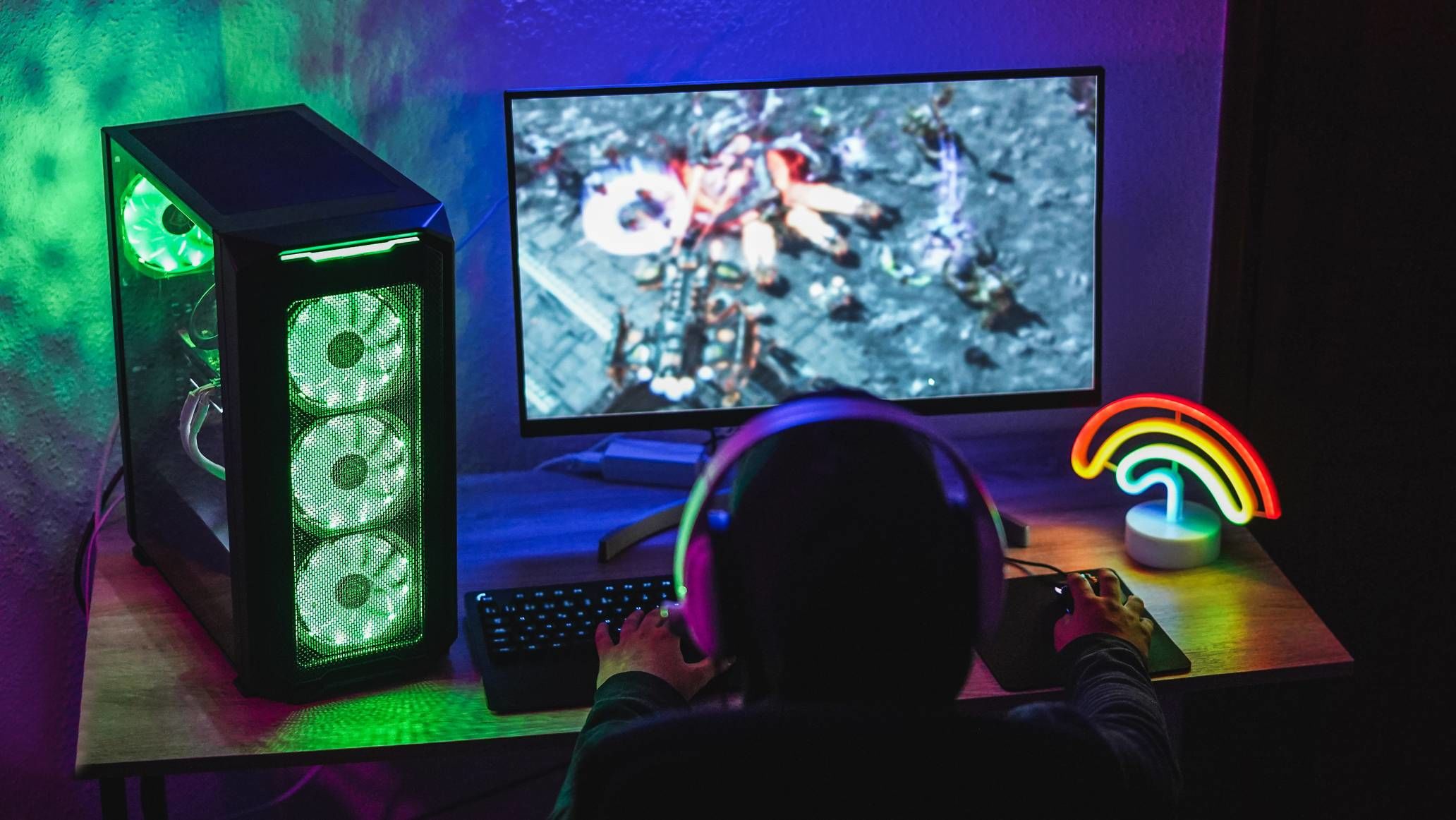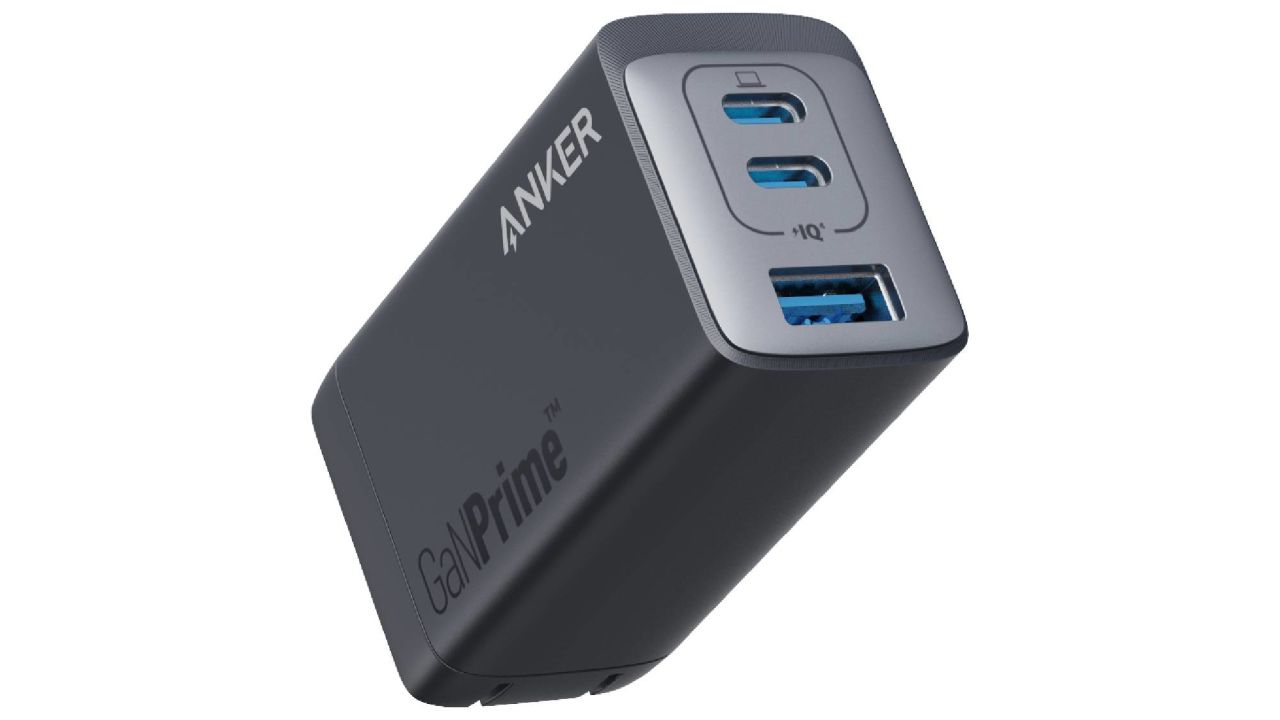The new PS5 and Xbox Series X might be all the rage right now, but for many, the best way to play games is still in front of a mouse and keyboard. PC gaming is more popular than ever, thanks to a ton of great options for buying or building a powerful computer that can play hot titles like Cyberpunk 2077 and Star Wars Squadrons at their most optimal settings.
Better yet, PC gaming is no longer a niche hobby reserved for hardcore enthusiasts with tons of money to spend. While you’ll have to invest a little more up front than you would for a console, there are plenty of dependable starter systems out there that will give you great performance for the biggest blockbuster games for years to come. Better yet, the benefits of investing in a good PC go well beyond games, and the upgradability of gaming PCs gives them a far longer shelf life than any console.
Curious about giving PC gaming a shot? Here’s everything you need to know, including the key specs and features to look out for and our recommendations for the best beginner gaming PCs for getting started.
Why you should get into PC gaming
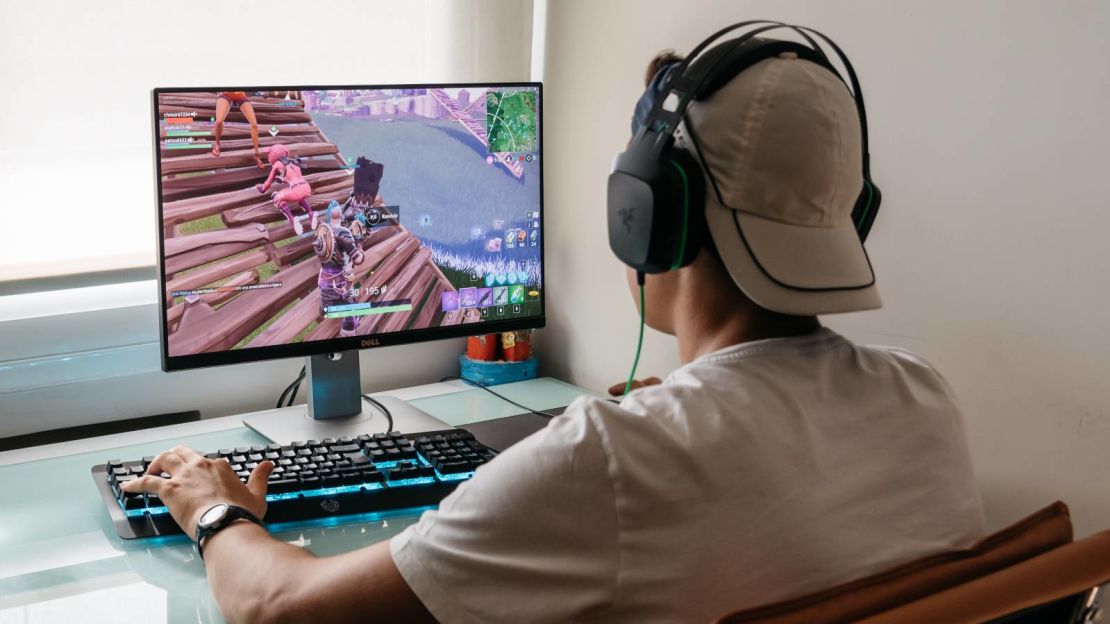
Don’t get us wrong: We love consoles, from their plug-and-play ease of use to their compelling exclusive games. But PC gaming offers a level of flexibility, maximum performance and game variety that’s hard to top, and a great gaming desktop can serve as an excellent complement — or alternative — to a PlayStation, Xbox or Nintendo Switch.
The biggest game library out there
For starters, owning a good Windows gaming PC opens you up to thousands upon thousands of games that span literal decades, culminating in a game selection that dwarfs even the most robust console libraries out there. You can travel back in time and play the original Doom, Quake and Half-Life, enjoy contemporary classics like BioShock and The Sims and crank up modern favorites like Control and The Witcher 3 to their maximum graphical potential.
And since Microsoft publishes all of its major games (and offers Xbox Game Pass) on PC, a good gaming rig obviates the need to hunt down an Xbox Series X for playing the latest Gears, Halo and Forza games. Playing on PC also means you’re not limited to one specific storefront, with platforms such as Steam, Origin and the Epic Games Store offering multiple ways to buy — and save.
“There’s a misconception that PC gaming is expensive compared to console gaming, but that’s just not true,” says Linus Sebastian, founder of popular YouTube channel Linus Tech Tips. “Thanks to the number of competing game marketplaces on PC, the exact same game is often cheaper on PC, leading to considerable savings over the life span of the machine if you buy a lot of games.”
The PC platform isn’t without its own compelling exclusives, either, from popular online shooters like Valorant to the wildly popular massively multiplayer action of World of Warcraft.
“PCs are the platform on which games are basically made,” says Lewis Ward, head of gaming and AR/VR at research firm IDC, noting that popular titles such as Minecraft and Among Us made their debut on PC. “Breakout indie games almost always appear on PCs first… The catalog is just much deeper than console game catalogs.”
Top-tier performance
If you care about performance, then PC gaming is definitely for you. Even a decently affordable rig can get you 1080p gaming at high frame rates (essentially how smoothly a game runs). Those willing to go all out can enjoy immersive 4K gaming at 60 frames per second and beyond — a level of performance that consoles are only just starting to scratch at.
“Since the high end of PC tech consistently runs ahead of consoles, if your bag is 120+ frames per second gaming or if you like a multi-monitor or ultrawide gaming experience, that’s basically limited to the PC form factor,” says Ward.
And whether you buy a prebuilt system or build your own, most gaming PCs are upgradable, meaning you can swap in better components over time. That’s something you simply can’t do on consoles.
“A gaming PC might cost more up front, but some parts — like a case or power supply — can be used for as long as two full console cycles before needing to be replaced,” says Sebastian.
You can play the way you want
Gaming PCs also give you freedom to use your controller of choice — whether that’s an Xbox Wireless Controller, a Sony DualShock 4 or a trusty mouse and keyboard. It’s also the best platform for virtual reality enthusiasts, with support for a wide range of headsets, including the accessible Oculus Rift S and high-end HTC Vive Cosmos.
“On PC, you need a monitor, tower, keyboard and mouse and you’re all set, but you can also continue to build up your system to deliver experiences that just aren’t available on console,” says Sebastian.
Triple monitors to show you what’s in your peripheral vision in driving and flight sim games? Yep. Motion tracking accessories that make you feel like you’re actually in the game? Oh yeah. Scented oils that blow different smells at you depending on the gaming experience? Well, that’s not quite here yet, but there are prototypes!
Gaming PCs can do much more than gaming
And unlike consoles, a great PC can do so much more than play games or stream movies and TV shows. A good gaming desktop doubles as a powerful computer for web surfing, office work, video editing, music production and pretty much any other task you’d need a PC for.
“Pretty much any gaming rig over $500 these days is capable of at least 1080p video streaming and editing, allowing you to share your gaming experiences live or ingest the footage and edit them together for an audience on YouTube,” adds Sebastian.
What to look for in a gaming PC
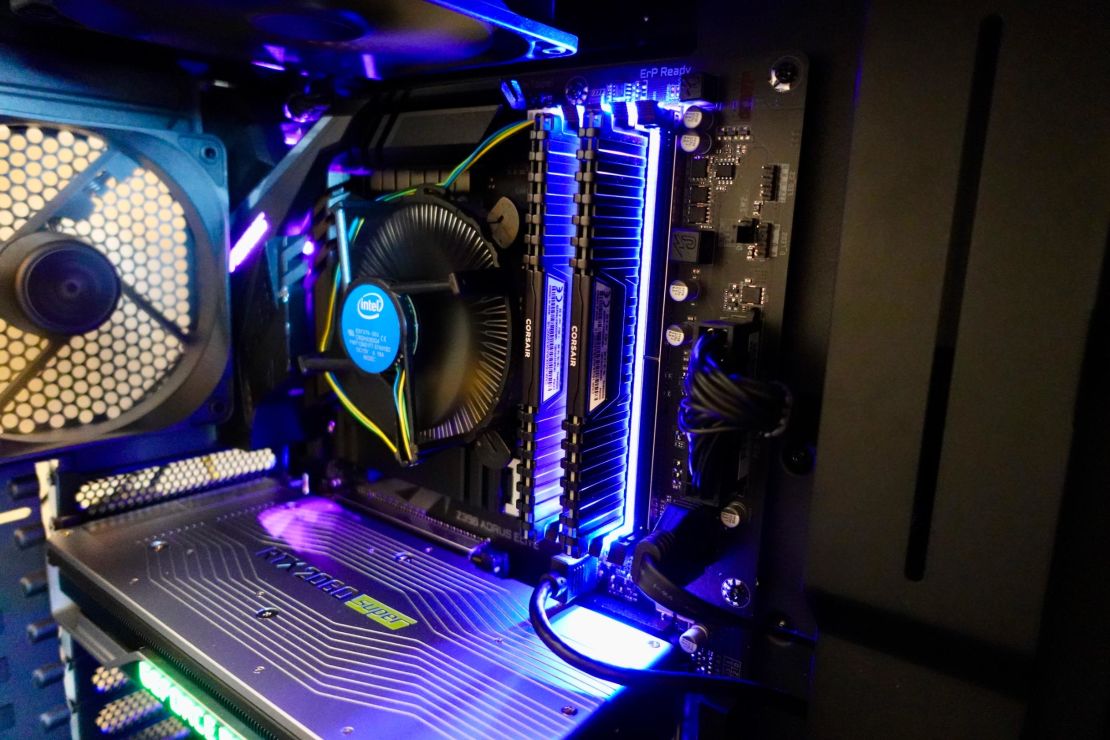
If you’re new to PC gaming, the sheer amount of systems out there may be daunting, and the litany of technical specifications for each system may read like a second language to you. Here are some of the key specs to pay attention to when shopping for a gaming computer as well as our recommendations for the types of parts to pick for your system.
CPU: The CPU (central processing unit) is essentially the brain of your PC, carrying out all of the essential tasks that allow it to function properly. A new gaming PC will either come with an Intel Core CPU or an AMD Ryzen processor — both are capable of delivering top-tier gaming performance, with AMD generally offering slightly better value.
GPU: One of the most crucial parts of any gaming PC, your GPU (graphics processing unit) will determine the level of visual fidelity and performance your computer can crank out while playing games. The two major players here are Nvidia and AMD — according to the experts at Tom’s Hardware, the former wins on overall performance, while the latter offers more affordable prices.
RAM: Random access memory, or RAM, is what allows your computer to quickly read and write data. The more RAM you have, the better overall performance you’ll enjoy, especially when it comes to multitasking.
Storage: Your PC will come with either a hard disk drive (HDD) or solid-state drive (SSD). Since they’re an older technology, hard drives are generally cheaper and can be found in higher capacities. But we recommend getting a system with an SSD, as your boot times and game loading speeds will be significantly faster.
As far as a good baseline of specs to look for, Sebastian recommends starting with a modern quad-core CPU (such as an AMD Ryzen 3 or Intel Core i3), at least 16GB of RAM, and an AMD Radeon 5700 or Nvidia GeForce 1660 Super for your graphics card.
“As long as you have enough system memory and storage space to meet the minimum requirements of the game, performance mostly comes down to the CPU and graphics card,” says Sebastian. “Find reviews of the components you’re looking at to see how well they’ll handle the games you want to play. If all you need is 60 [frames per second] in Counter Strike, I’m willing to bet you can get started for a lot less than you’d think.”
The best beginner gaming PCs
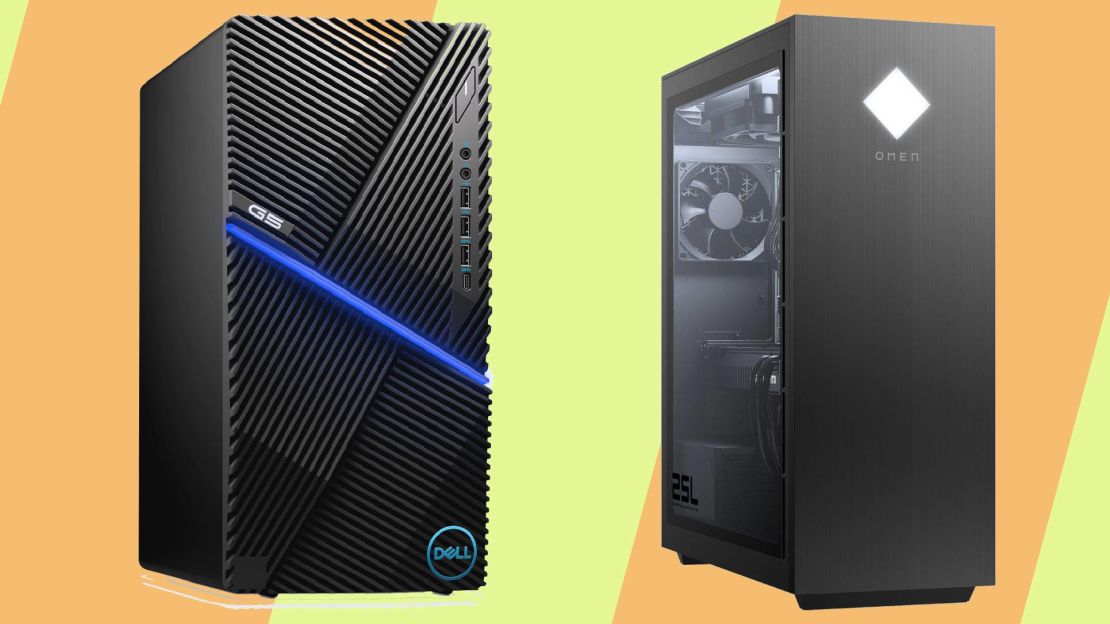
There are plenty of great beginner gaming PCs for those who want to enjoy the perks of PC gaming without paying an exorbitant price — and without the hassle of having to build one yourself.
One popular pick is the Dell G5 Gaming Desktop, which packs solid specs into a compact design that you can upgrade over time. The starting configuration goes for as low as $685, which gets you a 10th-gen Intel Core i3 processor, an AMD Radeon RX 5300 graphics card, 8GB of RAM and a 1TB hard drive. That’s enough power for playing games like Call of Duty: Warzone and Gears 5 at smooth frame rates at 1080p, though we recommend springing for at least 16GB of RAM ($98 extra) and a 512GB SSD ($78 extra) if you can. That’ll give you better breathing room for multitasking and much better load times.
Another solid option is the HP Omen 25L, which starts at $799 and gets you an AMD Ryzen 5 3500 processor, an AMD Radeon RX 5500 graphics card, 8GB of RAM and a 256GB SSD.
If your budget is higher, the Alienware Aurora is largely considered the best gaming desktop out there. It starts at an attainable $1,009 with modest specs for solid 1080p gaming, but those who want more future-proofed specs can check out the $2,339 model with an Intel Core i7 processor, Nvidia RTX 3070 graphics, 16GB of RAM and a 512GB SSD. That’s enough for consistent high frame rate gaming at up to 1440p resolution.
There are also a variety of boutique gaming PC manufacturers who will custom-build a unit for you based on your preferred specs and design. Based on Linus Tech Tips’ recent Secret Shopper feature, Sebastian recommends iBuyPower for overall value and Maingear for its high-quality customer support. Another popular option is NZXT’s BLD service, which lets you choose the games you care most about playing in order to help you figure out what kind of specs you need.
The essential accessories you need
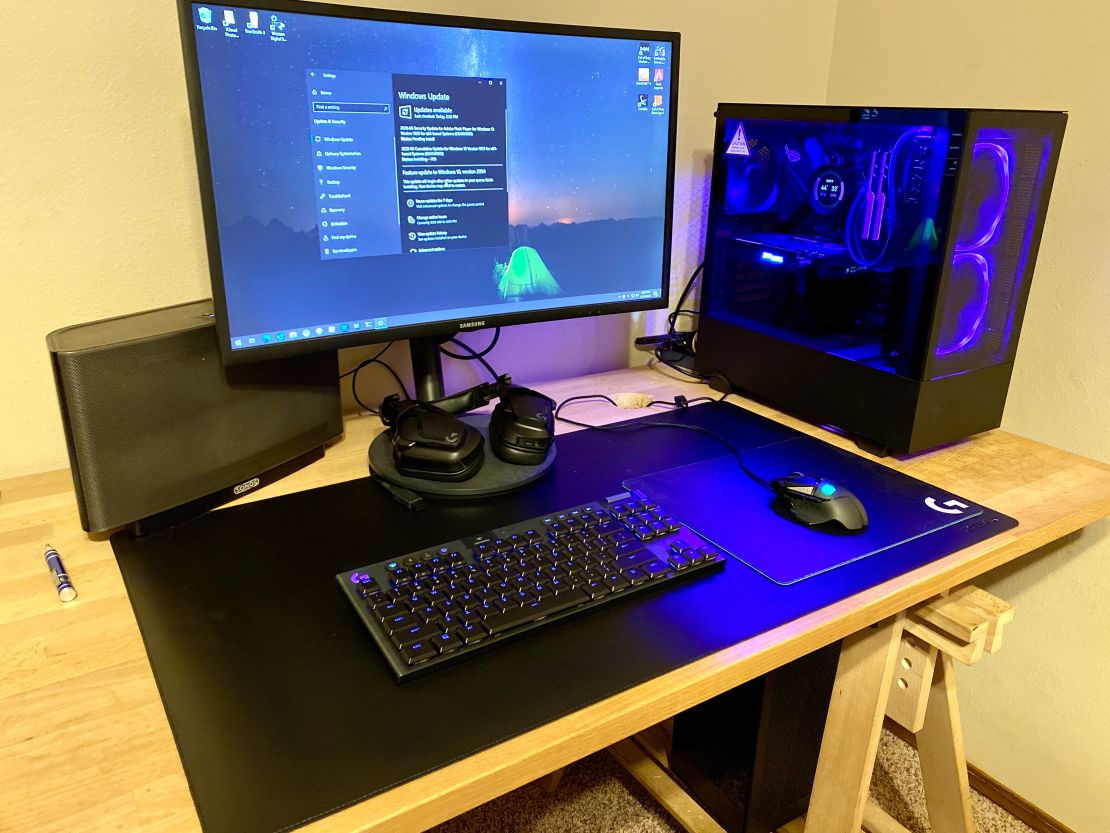
Picking the right system is just one part of putting together a great PC gaming setup — finding the right accessories is nearly as important.
While many starter PCs come with a standard-issue mouse and keyboard out of the box, it’s worth considering a dedicated gaming mouse and gaming keyboard for the best performance and longevity. A mouse-and-keyboard combo such as the $79 Logitech G502 (currently $39, originally $79) and Corsair K70 MK.2 ($89) will give you plenty of control, comfort and customization while gaming, while headsets like the SteelSeries Arctis 1 ($49) will keep you immersed in your game and allow you to chat with friends.
Perhaps the most important accessory you’ll buy for your PC setup is your monitor. You’ll want to make sure you get something that matches what your system is capable of — a 1080p display like the ViewSonic VX2452MH ($119, originally $139) will do just fine for an entry-level system, while those with higher-end graphics cards should check out monitors like the BenQ EL2870U ($299, originally $499) for playing in 4K. You’ll also want to consider features like G-Sync (for Nvidia graphics cards) and FreeSync (for AMD GPUs). These allow your monitor to sync up its refresh rate to that of your graphics card, ensuring extra-smooth performance and preventing nasty visual problems like screen tearing.
Should you buy or build?
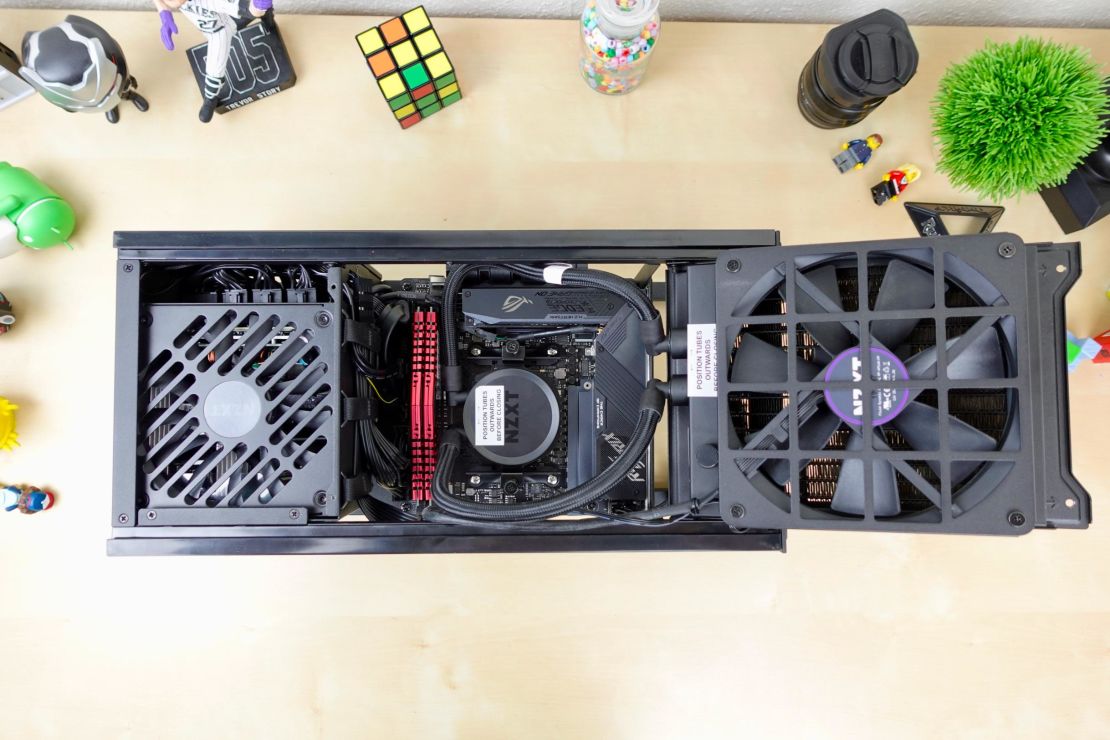
While there are plenty of great prebuilt systems out there, many PC enthusiasts prefer building their own. You can save some money if you opt to build your own system, and there is a special level of satisfaction that comes with putting together a computer yourself. However, you should also consider whether you’re willing to put in the time necessary to build a PC, or if you’d prefer having something you can plug in and start playing with out of the box.
“A lot of people will tell you that it’s cheaper to build your own, but this is a bit of a myth,” says Sebastian. “Yes, it can be marginally less expensive, but unless you attach literally zero value to your own time, it’s likely that you could have simply had someone assemble it for you for less than it’ll cost you to pay yourself to do it.
“So the real reason to build your own PC is because you think it would be fun. Everything from researching the parts to the actual assembly is a learning experience that many people find very enjoyable — all the more so when they’re playing games on something they built with their own two hands.”
If you do decide to go the DIY route, be sure to check out our guide on how to build a gaming PC.
Bottom line
Regardless of whether you decide to build your own rig or go with the many excellent preconfigured options out there, getting a good PC will open you up to a near-endless library of titles and enable gaming experiences you simply can’t have anywhere else. Good luck on your journey, and have fun!
